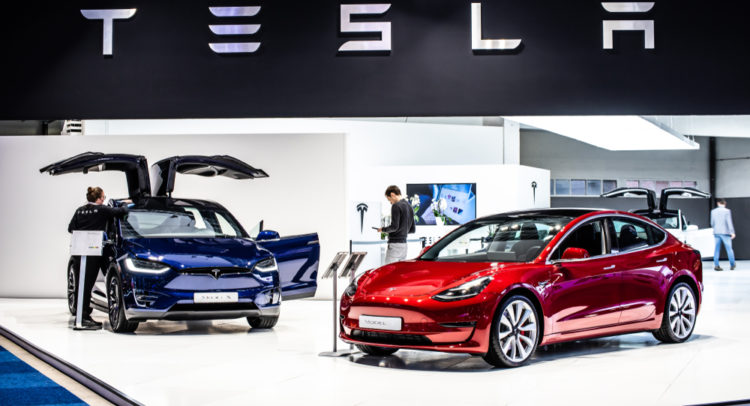Tesla (NASDAQ: TSLA) ticked higher by more than 9% in morning trading on Thursday after the EV major’s CEO, Elon Musk outlined an upbeat sales and production outlook for the company on its Q4 earnings call.
Discover the Best Stocks and Maximize Your Portfolio:
- See what stocks are receiving strong buy ratings from top-rated analysts.
- Filter, analyze, and streamline your search for investment opportunities with TipRanks’ Stock Screener.
While the company delivered mixed Q4 results, Musk remained optimistic about Tesla’s demand outlook. The CEO pointed out that so far in January, “we’ve seen the strongest orders year-to-date than ever in our history. We currently are seeing orders at almost twice the rate of production.”
Musk added that with the recent 20% reduction in the company’s car prices in the U.S. and Europe, the company was looking at making its cars more affordable for the average consumer. Tesla expects to sell 1.8 million EVs this year indicating a year-over-year sales growth of 37%. Barring any external shocks, Musk added that sales could even reach 2 million EVs.
The company’s management provided an update on its much-awaited Cybertruck pickup and stated that while production is slated to begin later this year in Texas, volume production will be achieved only next year.
The CEO also addressed the topic of recession and commented, “My guess is if the recession is a serious one, and I think it probably will be but I hope it isn’t, that would lead to meaningful decrease in almost all of our input costs. So we expect to see deflation in our input costs, which would likely then lead to, yes, better margin.”
Regarding its cost base, TSLA is looking at economies of scale to expand production at its Berlin and Austin, Texas Gigafactories and ramp up the production of its batteries in-house.
Tesla’s CFO Zachary Kirkhorn added that the company would be “attacking every other area of cost and unwinding cost increases created for multiple years of COVID-related instability.” When it comes to the cost of lithium used in EV batteries, the CFO expects this cost to be higher this year as compared to last year.
As a result, Kirkhorn pointed out that the company’s operating margin is likely to be impacted over the near term. However, he remained confident that even after the price cuts, TSLA’s automotive gross margin (excluding leases and rent credits) will stay at 20% while the average selling price (ASP) across all its models will remain at $47,000.
The company’s automotive gross margin in Q4 came in at 25.9% versus more than 30% a year back. The Q4 gross margin was its lowest in the past five quarters.
Top-rated Wedbush analyst Daniel Ives who has long been bullish on TSLA commented on its Q4 results, “While in the near-term Tesla is sacrificing margins for higher volumes, we view this as the right strategic poker move to put an iron fence around its customer base and fend off growing EV competition coming from Detroit, Europe, and China.”
The analyst while reiterating a Buy rating, raised the price target to $200 from $175 on the stock. Ives’ price target implies an upside potential of 38.5% at current levels.
TSLA reiterated its long-term outlook at its Q4 earnings call of a 50% compounded annual growth in vehicle deliveries. Analyst Ives had reiterated a Buy rating on TSLA stock and a price target of $175 before its earnings.

Overall, analysts are cautiously optimistic about TSLA stock with a Moderate Buy consensus rating based on 17 Buys, seven Holds and three Sells.









